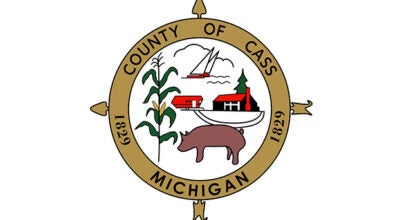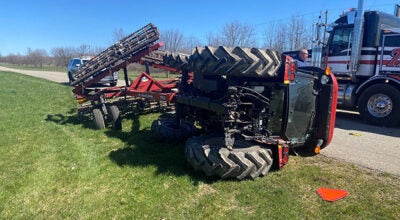Dozens of representatives attend local meeting
Published 7:52 am Wednesday, February 17, 2016
Ideas flowed as freely as the waters of the Dowagiac River inside the Cass County COA Lowe Center last week, as the county kicked off discussions on how local environmental agencies can begin working together to conserve the environment — and their time and money.
Representatives with more than a dozen different private and public agencies assembled Friday for a “conservation conversation” — an informal discussion, hosted by the county, about how environmental organizations can better collaborate with each other to improve and enhance Cass County’s natural resources.
Entities represented at the meeting included everything from county offices such as the parks department and drain commission, public agencies such as the conservation district and Michigan State Extension Office, nonprofits like Cass County Pheasants Forever and Kinexus, to private companies like Midwest Energy Cooperative.
The idea of bringing together so many different environmentally-conscious people was devised by Cass County Commissioners Bernie Williamson and Dixie Ann File, as a way to improve the environment in a county with limited resources.
Opening up the meeting, Williamson talked about the commonality between the diverse group of attendees based on their responses to a survey the county sent out prior to Friday’s meeting. The answers Williamson received showed that many of the agencies shared the same goals and challenges, including issues with funding and manpower, she said.
“What I love most about it is that the people in this room are sharing a willingness to explore the possibilities of working together,” Williamson said. “This is really uncommon — anyone in government knows that. It’s really uncommon for people to step out of their own yards and say ‘I will help you.’”
Participants were also asked to share what kind of resources at their disposal they could share with others, which ranged from physical assets like plant seeds or tilling equipment to intangible resources such as technical assistance, education and grant writing skills, Williamson said.
During the meeting, the commissioner and Pheasants Forever President Jeff Nelson introduced another tool area agencies could use to help facilitate future cooperation — a website, Cass County CORE (Conserving Our Rural Environment). While still under construction, this page, built into the current Cass County Pheasants Forever site, would provide a centralized directory of conservation organizations and source of information, giving these agencies a framework to begin coordinating future projects with one another.
“We don’t want to be another organization — we have plenty of organizations already,” Nelson said about CORE. “We’re not looking to be administrative as much as we want to be an information source.”
The site could also serve as a platform for agencies to share success stories with one another, and as a way to ask questions or gather suggestions on how to proceed when issues come up, Williamson added.
Be it the planting of native grasses or increasing the local population of butterflies, there are many different ways that increased cooperation and sharing among agencies could benefit the Cass County area, Williamson said.
“We would like for one of the first steps in any project to be to look to this group for support, instead of trying to do it on your own,” Williamson said. “It will be a change for your culture.”






